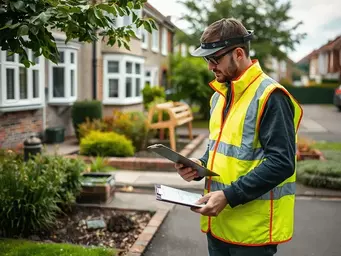Sheffield Pest Control Compliance Guide
![Sheffield Pest Control Laws: What You Need to Know About Insect Management Compliance]()
In a world where pest control practices can directly impact public health and safety, understanding the legal framework is essential. How effective are your current pest management strategies? Let’s explore the key insights from Sheffield's pest control laws that can transform your approach to compliance and community well-being.
What You Will Learn
- Legal compliance in pest control ensures public safety by effectively managing harmful pests, reducing health risks.
- Understanding pest control laws fosters community well-being, contributing to a cleaner and safer environment.
- Familiarity with key legislation, such as the Prevention of Damage by Pests Act 1949, is crucial for property owners and pest control professionals.
- The Food Safety Act 1990 mandates that food businesses implement pest control measures to maintain hygiene and safety standards.
- Regulations under COPR 1986 ensure safe and responsible use of pesticides, protecting both human health and the environment.
- The Animal Welfare Act 2006 promotes humane treatment in pest control, aligning practices with ethical community standards.
Key Legislation Shaping Pest Management in Sheffield
Understanding the legal framework governing pest control in Sheffield is crucial. The laws ensure effective pest management while safeguarding public health and the environment. Here’s a closer look at key legislation, which is vital for effective pest control for businesses.
Prevention of Damage by Pests Act 1949
Establishes the need for effective pest control to prevent damage to crops and property. Property owners must prevent infestations.
- Property owners' responsibility.
- Local authorities can enforce action.
- Failure can lead to legal action.
Food Safety Act 1990
Requires food businesses to maintain hygiene and safety standards, making pest control integral.
- Mandates robust pest strategies.
- Requires regular pest inspections.
- Documentation of practices is vital.
Pesticides Regulations (COPR) 1986
Governs the safe and responsible use of pesticides, ensuring environmental and public health protection.
- Only approved pesticides.
- Licensing & training required.
- Minimizes harm to non-targets.
Animal Welfare Act 2006
Mandates humane treatment for all animals, including pests, emphasizing ethical control methods.
- Minimize suffering & distress.
- Consider non-lethal methods.
- Aligns with community values.
Understanding Sheffield Pest Control Laws and Insect Management Compliance
As a pest control expert, I can’t stress enough how crucial it is to follow pest control laws in Sheffield. These regulations are designed to protect public health and safety. When pest control practices are legally compliant, we not only safeguard our communities but also ensure a healthier environment for everyone. Ignoring these laws can lead to unintended consequences, such as health risks and legal repercussions.
In my experience, understanding the legal framework around pest management is just as important as the treatments we apply. By adhering to these guidelines, we can deliver effective solutions tailored to the specific needs of Sheffield's residents and businesses.
![Pest control professional reviewing regulations on a tablet, with a cityscape of Sheffield in the background, clean image]()
The Importance of Legal Compliance in Pest Control
Legal compliance plays a vital role in our industry. Here are some key reasons why it matters:
- Public Safety: Compliance ensures that harmful pests are managed effectively, reducing potential health hazards.
- Community Well-being: By following the law, we contribute to a cleaner, safer environment for all residents.
- Professional Integrity: Adhering to regulations reflects our commitment to ethical pest control practices.
As a business, we at Pest Control Sheffield are dedicated to operating within the bounds of the law. This not only builds trust with our clients but also enhances the reputation of our industry.
Overview of Relevant UK Pest Control Legislation
Several key laws impact pest management in the UK, including:
- Prevention of Damage by Pests Act 1949: Establishes the need for effective pest control to prevent damage to crops and property.
- Food Safety Act 1990: Ensures that food businesses maintain hygiene and safety standards, directly linked to pest control measures.
- Pesticides Regulations (COPR) 1986: Governs the use of pesticides, ensuring they are used safely and effectively.
- Animal Welfare Act 2006: Mandates humane treatment of animals, including those considered pests.
By understanding these laws, we can better navigate the complexities of pest control while ensuring compliance. It’s not merely about following rules; it’s about fostering a safer community in Sheffield!
Key Legislation Impacting Pest Management in Sheffield
Prevention of Damage by Pests Act 1949 Explained
The Prevention of Damage by Pests Act 1949 is fundamental in establishing a legal framework for pest control in the UK. This act requires property owners to take necessary measures to prevent pest infestations that could cause damage to structures or crops. It highlights the responsibility that individuals and businesses have in maintaining an environment free from pests.
Failure to comply with the provisions of this act can lead to legal action, including fines or orders to carry out pest control measures. Our role as pest control professionals is to assist clients in understanding these obligations and implementing effective solutions that meet legal standards, such as those for managing common Sheffield household insects.
Food Safety Act 1990 and Its Relevance
For businesses in the food sector, the Food Safety Act 1990 is particularly significant. It requires that all food provided to the public is safe to eat and must not be contaminated by pests. This means that pest control measures must be integral to food safety practices.
- Regular Inspections: Food businesses must have regular pest inspections to identify and address any issues promptly.
- Documentation: Keeping detailed records of pest management activities is essential for compliance.
- Preventative Measures: Implementing strong sanitation and pest-proofing strategies is a must.
At Pest Control Sheffield, we emphasize the importance of understanding the Food Safety Act to our clients. Compliance with this legislation not only protects their business but also builds customer trust.
![Food safety inspector examining a food preparation area for pests, with a checklist and clipboard, clean image]()
Pesticide Regulations Under COPR 1986
In the UK, the use of pesticides is governed by the Pesticides Regulations (COPR) 1986. This legislation sets out strict guidelines on the types of pesticides that can be used, how they should be applied, and the safety measures that must be followed. As a pest control professional, it is our duty to comply with these regulations to ensure that we are using products that are both effective and safe for the environment.
Compliance with COPR protects not only the health of our clients but also the broader ecosystem. We must stay informed about any changes in regulations to maintain our commitment to safe pest management practices.
Animal Welfare Act 2006 and Ethical Considerations
The Animal Welfare Act 2006 mandates that all pest control measures must be carried out humanely. This legislation emphasizes that any pest management strategy should consider the welfare of animals, including those classified as pests. As pest control experts, we are committed to using methods that are effective yet ethical.
By integrating humane practices into our pest control solutions, we not only comply with the law but also build a responsible approach to pest management that reflects the values of our community in Sheffield. This includes understanding specific regulations like the bird control laws in Sheffield to ensure all practices are humane and compliant.
Frequently Asked Questions About Sheffield Pest Control Laws
Q: What is the primary purpose of pest control laws in Sheffield?
A: The primary purpose of pest control laws in Sheffield is to protect public health and safety, prevent damage to property and crops, and ensure that pest management practices are humane and environmentally responsible.
Q: Which key legislation influences pest control in Sheffield?
A: Key legislation includes the Prevention of Damage by Pests Act 1949, the Food Safety Act 1990, the Pesticides Regulations (COPR) 1986, and the Animal Welfare Act 2006.
Q: What does the Prevention of Damage by Pests Act 1949 require of property owners?
A: This Act requires property owners to take necessary measures to prevent pest infestations that could cause damage to structures or crops, placing a responsibility on them to maintain a pest-free environment.
Q: How does the Food Safety Act 1990 impact food businesses regarding pest control?
A: The Food Safety Act 1990 mandates that food businesses maintain high hygiene and safety standards, which includes implementing robust pest management strategies, regular inspections, and detailed documentation to prevent food contamination.
Q: What are the main requirements of the Pesticides Regulations (COPR) 1986?
A: COPR 1986 sets strict guidelines for pesticide use, requiring that only approved pesticides are used, operators are licensed and trained, and measures are taken to minimize harm to non-target species and the environment.
Q: What ethical considerations are highlighted by the Animal Welfare Act 2006 in pest control?
A: The Animal Welfare Act 2006 emphasizes that all pest control methods must be humane, minimizing suffering and distress for animals, and encouraging the consideration of non-lethal methods whenever possible.
Pro Tip
To ensure effective pest control compliance, regularly update your knowledge about local pest management laws. Consider scheduling annual training sessions for your team to stay informed about any changes in regulations, which can help you maintain high standards of safety and efficiency in your pest control practices.
Key Legislation Impacting Pest Management in Sheffield
Understanding the legal framework governing pest control in Sheffield is crucial for both pest control professionals and property owners. The laws not only ensure effective pest management but also safeguard public health and the environment. Here’s a closer look at some of the key legislation that shapes pest management practices in our community.
Prevention of Damage by Pests Act 1949 Explained
The Prevention of Damage by Pests Act 1949 establishes a foundation for effective pest control in the UK. This act places an obligation on property owners and local authorities to take action against pests that could potentially cause harm to health or property. It mandates that individuals must manage any pest infestations that could lead to significant damage.
- Property owners are responsible for preventing pest infestations through proactive measures.
- Local authorities have the right to issue notices for pest control failures, prompting immediate action.
- Failure to comply can lead to legal action and financial penalties.
By adhering to this act, pest control operators can ensure they are working within the legal bounds while also protecting the community from potential health risks.
Food Safety Act 1990 and Its Relevance
The Food Safety Act 1990 is another critical piece of legislation affecting pest control, especially in food-related businesses. This law emphasizes the importance of maintaining sanitary conditions in places where food is stored, prepared, or sold. Pest control measures are a vital aspect of achieving compliance with this act.
- Businesses must implement robust pest management strategies to avoid contamination.
- Regular pest inspections are necessary to comply with health regulations and ensure food safety.
- Documentation of pest management practices is essential for demonstrating compliance during inspections.
By keeping pests at bay, food businesses can protect their customers and maintain their reputations, as I’ve seen firsthand at Pest Control Sheffield. This commitment is similar to what's needed when choosing reliable pest control services.
Pesticide Regulations Under COPR 1986
The Control of Pesticides Regulations (COPR) 1986 establishes guidelines for the use of pesticides, ensuring that they are used safely and responsibly. This legislation is particularly relevant for pest control operators, as it outlines the legal requirements for pesticide application and handling.
- Only approved pesticides can be used, and operators must follow the instructions strictly.
- Licensing and training are required for pest control professionals to handle pesticides properly.
- Environmental safety is a priority, requiring operators to minimize any potential harm to non-target species.
Working with compliant practices is essential for maintaining the integrity of our environment while effectively managing pest populations.
Animal Welfare Act 2006 and Ethical Considerations
The Animal Welfare Act 2006 focuses on humane treatment of all animals, including those considered pests. This act emphasizes that pest control methods must be humane and ethical, aligning with community values in Sheffield.
- Pest control measures should minimize suffering and distress for any animals involved.
- Operators must consider non-lethal pest control methods whenever possible.
- Awareness of local wildlife laws can further guide ethical pest management practices.
At Pest Control Sheffield, we prioritize adherence to these ethical guidelines in our services, ensuring that pest control solutions are both effective and humane.
Recap of Key Points
Here is a quick recap of the important points discussed in the article:
- Legal Compliance: Adhering to pest control laws in Sheffield is essential for public health and safety.
- Key Legislation: Familiarize yourself with the Prevention of Damage by Pests Act 1949, Food Safety Act 1990, Pesticides Regulations (COPR) 1986, and Animal Welfare Act 2006.
- Community Responsibility: Property owners must take proactive measures to prevent pest infestations and ensure a cleaner environment.
- Documentation and Inspections: Regular pest inspections and maintaining detailed records are crucial for compliance, especially in food-related businesses.
- Humane Practices: Implement pest control methods that prioritize humane treatment of animals in line with legal requirements.
Liam Harrington
As a BPCA and NPTA-accredited pest control expert, I've dedicated over a decade to safeguarding Sheffield homes and businesses from unwanted intruders. My passion lies in delivering effective, safe, and tailored pest management solutions, ensuring peace of mind for our community. From common household pests to complex commercial infestations, I'm committed to sharing expert knowledge and promoting sustainable practices.







